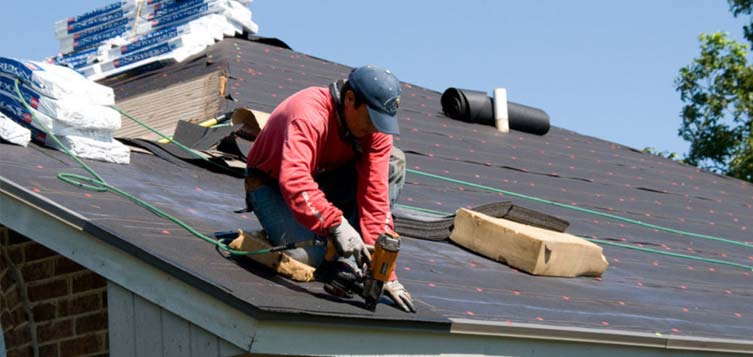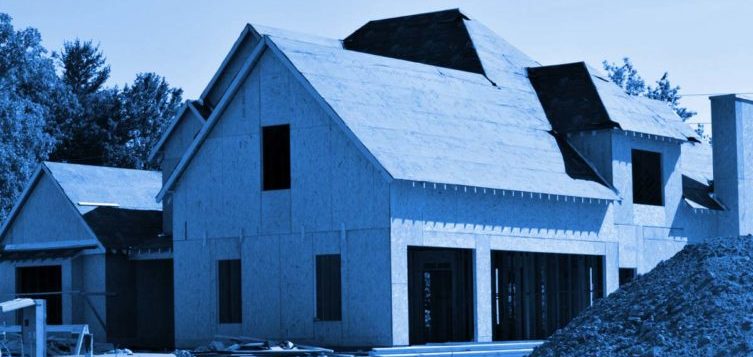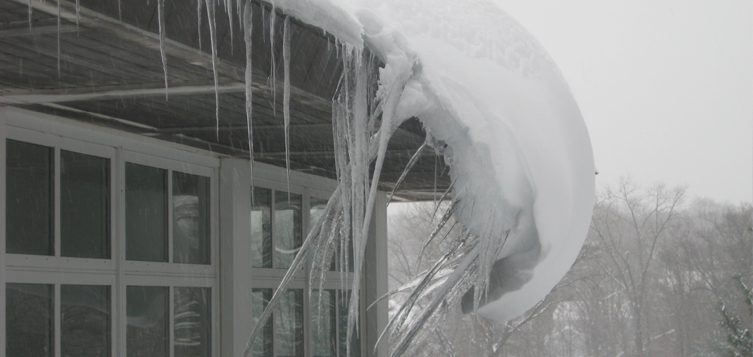Whether you’ve lived here all your life or just recently moseyed on in, if you’re a first-time home buyer you surely understand the significance of having that first dream “roof over your head”. But do you know what to look for when hiring a roofer?
There’s a lot of information out there to consider when choosing a solid roofing company. First time home buyers are urged to inspect a home thoroughly before buying, but once the papers are signed, anything that isn’t right will need to be fixed. Getting a new roof is one of the most common things overlooked.
A roof is one of the most important homeowner investments you will make. It’s an investment in safety, weather protection, aesthetic beauty and the future value of your home. You should feel as secure with your choice of roofer as you want to feel about the roof itself.
Below are some tips that should help you in your research:
What A First-Time Home Buyer Can Learn Online
Unless you know someone who has recently had a great roofing job done, most of your research will start online (or, since you’re reading this article, it already has).
You’ll probably begin by doing a search for local service providers on Google and review sites like Yelp, Angie’s List and HomeAdvisor. While researching potential providers, be sure that your roofer has a local, brick and mortar office.
On roofers’ websites (if they even have one), you can get a few good basics. You can also find out how many years they’ve been in business, check out customer reviews and see if they’ve got links to industry publications that provide information about any awards or rankings. You can also see if they’re accredited by the BBB.
Hopefully, you’ll also find photos of their completed jobs. Look for actual worksite pictures, not stock photography. A picture is still worth a thousand words. And so is a lack of pictures.
The internet is a great starting point. Making sure the roofing company has a brick and mortar office and website is a great starting point to weed out potential roofing scammers. Assuming you’ve found a few local roofing companies that look good. Now it’s time to start pounding the pavement (and the dial pad).
Make Calls and Go See Stuff
Call the roofing companies that you would like to consider. Ask for references from former customers and from professional contacts as well. Then call the references. Ask questions. Would they hire this roofer again? Were there any problems with damage or leakage and if so, how were the problems handled? Did the roofing company show respect for their property, their landscaping and their safety during the installation? Did the job get finished on time and on budget?
If the references sound good, go see the roofs. Drive by some completed jobs and view the workmanship for yourself. Does everything look straight, well-aligned, seamless? Does the roof have curb-appeal?
And don’t forget about those professional contacts. Call or visit material suppliers and lumber stores. Ask about their experiences in working with your potential roofers.
And Then What?
When you’ve got it narrowed down to a few good prospects, it’s time to start interviewing.
Don’t be intimidated by this process. Ask questions. Be clear about your budget. Be clear about your needs and expectations. Then ask more questions. Roofers who take pride in their work will be happy to answer questions and to back up their answers in writing.
Licenses and Insurance
Not all states require roofers to have a license. Texas is one of them. However, some Texas roofers might be licensed by the Roofing Contractors Association of Texas (RCAT). This is a voluntary license but it can be helpful in providing an added amount of confidence in your contractor as well as more information about them.
Your roofer should have both Workman’s Comp and Liability insurance (liability is recommended to be at least $1 million). Make sure that your potential roofer can provide you with proof of insurance. Don’t be shy about following up with your roofer’s insurance company. Ask for the name of the company and then call to confirm that policies are up to date.
Accidents can happen during construction and everyone needs to be covered; the roofing company, the individual workers, you and your property. And before any work begins, make sure that you have been added as additionally insured on their policy. If done correctly, your new roof will add value to the price of your home, don’t cut corners on finding the right roofer.
But Wait . . . There is More . . .
The references are fabulous, the prior jobs are gorgeous, the roofers are insured and you’re getting along like barbecue and ribs. And now it’s time for . . . asking more questions.
Bids, Costs, and Payment Schedules
All first-time home buyer should be aware roofer’s should see the work site and the existing roof before submitting an estimate to you. And when they do, this estimate should be free, and it should include both time and cost. Payments should be divided into one upfront payment to cover materials and a second payment when the roofing job is complete. Make sure that these things are all included in your roofer’s estimate:
– Old roof removal (and disposal)
– Replacement of any existing soft or rotted plywood
– A new underlayment moisture barrier
– Material and labor costs (including a supply of matching replacement shingles in case of storm damage)
– Post-job cleanup and any other potential costs that might be incurred.
Remember, the roofer has done this a lot; make sure they’ve included contingencies up front.
Warranties and Work Guarantees
A materials warranty should be good for about 20 years. This will vary a bit depending on the roofing material you choose.
Ideally, a roofing contractor will also guarantee their work. Some companies don’t (even legitimate ones) but it’s highly recommended. A work guarantee will usually be for a period of about 2-5 years.
Materials
Make sure your roofer takes the time to provide information on different types of roofing materials. Each one has a different look, a different projected lifespan, plenty of pros and cons and different framing and installation requirements. And each one has a different warranty. As a first-time home buyer, a budget must be taken into account but make sure you’re getting the best that your budget will afford you. Actual samples should be provided as well.
Common roofing materials include asphalt, clay, concrete, metal, slate, wood, shake and various synthetics. What does best in your climate? What looks best on your house? And whatever you choose, make sure that the materials have a Class A fire rating.
Respecting Your Property and Your Safety
Before you sign that contract, make sure it includes a plan for keeping you and your property safe and clean. A good roofer will have a plan for how to protect your landscaping as well as your driveway or other areas where dumpsters may be parked.
Get it in writing, including – if there is cosmetic or other property damage – what their process is for repair or replacement. Let them know about underground sprinkler systems or any other limitations as to where equipment can and cannot go.
Make sure that they plan to use ladder stabilizers where needed in order to keep gutters from being damaged.
Weather Contingency Plan
Your roofer should have a plan in place should the weather turn inclement during the job. Find out what it is. Be assured that your home and any roofing-in-progress will be kept secure and dry.
A Foreman on the Roof
Make sure that there will be a foreman on your roofing job. Know their name and don’t be afraid to ask them questions.
The Contract
Read the contract. Look for disclaimers. There shouldn’t be anything in the contract that makes you uncomfortable. Make sure the contract is specific as to exactly what work is to be done.
“Location, Location, Location” may be the mantra for buying a new home, but when signing contracts for renovation work, the mantra should be “Details, Details, Details”. If you have reservations about the contract (or the contractor), don’t sign.
Ask about things like adding vents if needed. You might even want to ask about a roof that can withstand solar paneling, should you want to add it in the future. This all may seem like an overwhelming process, but after all, it is the roof over your head.
Looking to get a project going?
Whether you need exterior work, roof maintenance and repair or a whole house makeover, we know home improvement inside and out! Contact us for a no obligation quote today.




